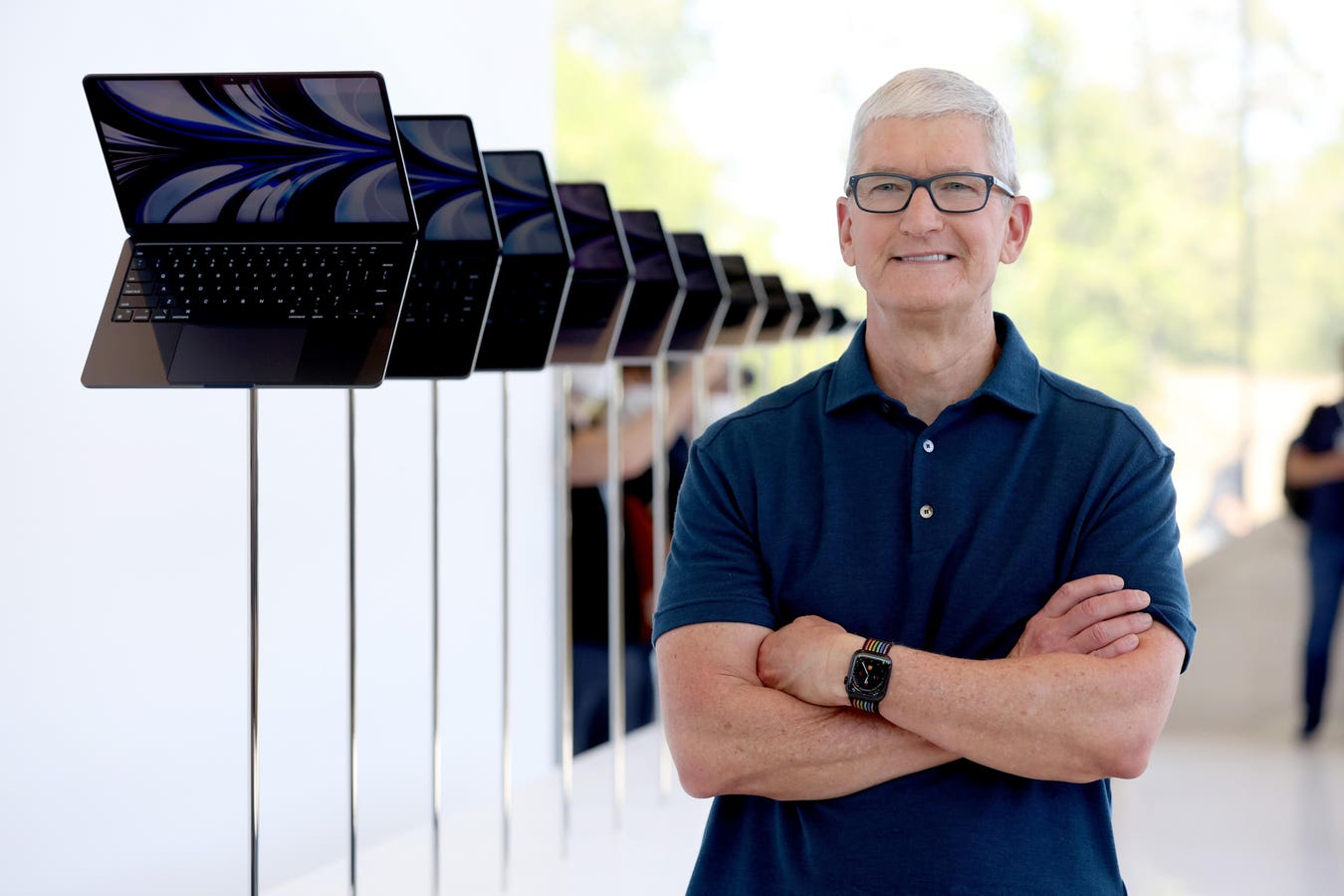Apple CEO Tim Cook looks at a display of the brand new, redesigned MacBook Air (photo by Justin … [+]
Updated April 28: Article originally posted April 27.
As Apple prepares to launch a new iPad model after an 18-month hiatus, will the MacBook Pro lose out?
With the launch of the M1 Apple Silicon chipset in 202 and its subsequent inclusion in the MacBook Air and MacBook Pro, Apple disrupted not only its own laptop and desktop businesses, but those of its competitors as well. It kept the pressure on with the M2 release, and only now, as the M3 iteration approaches the competition, are we seeing the potential of ARM-based competitors, powered by Qulacomm’s new Snapdragon X Elite.
Still, Apple is about to divert the public’s attention away from the MacBook Pro and MacBook Air. The year of the Mac is over, long live the iPad.
With the announcement of the next live event on Tuesday, May 7, Apple has all but confirmed the launch of a new iPad and a new Apple Pencil via the artwork on the invite. The iPad lineup hasn’t seen any new products since October 2022. Two versions of the iPad Air are expected, a 10.9-inch and a 12.9-inch version.
There are also two iPad Pro upgrades planned, with a move to OLED screens accidentally leaked by Apple.
Browsing Netflix on an Apple iPad Pro (Photo by Phil Barker/Future Publishing via Getty … [+]
Update: Sunday, April 28: An important upgrade came to light this weekend. Writing for Bloomberg’s Power On newsletter, Mark Gurman reports on the Apple Silicon that will be in the new iPad Pro tablets. It won’t be the M3 chipset currently found in the consumer-oriented MacBook Air and MacBook Pro; it’s the next-generation M4 chipset.
The M4 will have the natural spec bumps you see between annual chip upgrades, but it will have one key feature not present in the M3: artificial intelligence. Apple uses AI in various apps and processes (particularly image processing and predictive typing). Yet it has fallen behind rival manufacturers who supply silicon with dedicated hardware to support the AI revolution.
The M4 chipset allows Apple to bring its “big” hardware into the AI game, alongside the “mobile” A18 that will debut in the iPhone 16 family in September. If the iPad Pro, announced in May, ships with the M4 chipset, it will be Apple’s first AI-focused hardware, beating the iPhone and Mac family.
A brand new Apple iPhone 15 pro titanium (Photo illustration by John Keeble/Getty Images)
Apple has always emphasized the role of the iPad family as a replacement for a traditional computer. With a stylus, a touchscreen and a keyboard, the iPad Pro could meet the core needs of consumers who would normally use the MacBook Air and Pro models. You are limited to the apps that Apple deems safe to list in the iPad’s App Store. These will generally be simplified versions of apps found on the macOS platform; good enough for social media, casual use and office tools, but don’t expect to let the iPad platform get in the way of the Mac platform.
With the new iPads finally arriving, expect Apple’s PR team to focus on the hardware in the coming months. The power of the iPad, the ability to do everything you need on the go, the power of the hardware and the apps that unlock it…
Apple hopes that pent-up demand for a new model will contribute to a successful sales period. It just needs to diminish the MacBook’s promise as it does so.
Now read the latest headlines about iPad, iPhone and Apple Vision Pro in Forbes’ weekly Apple Digest…
